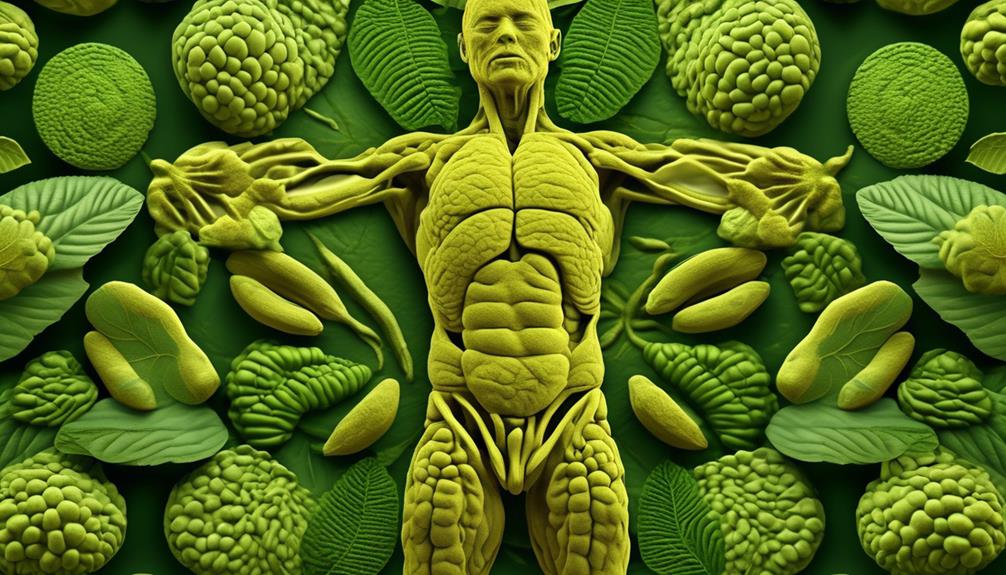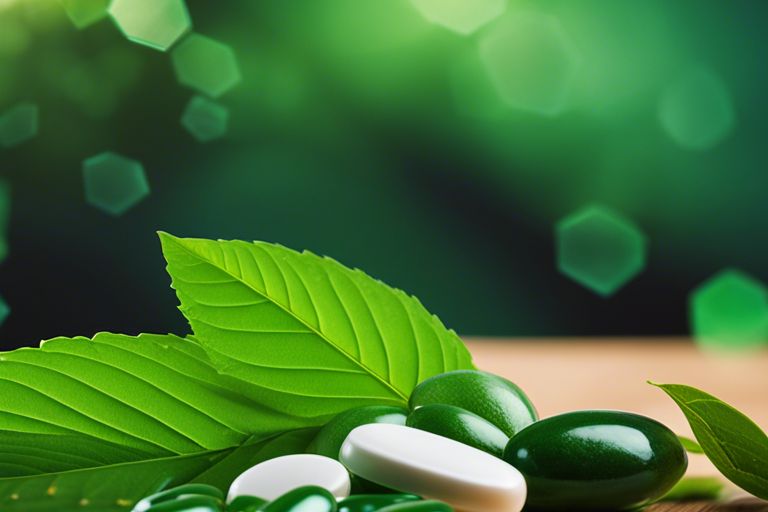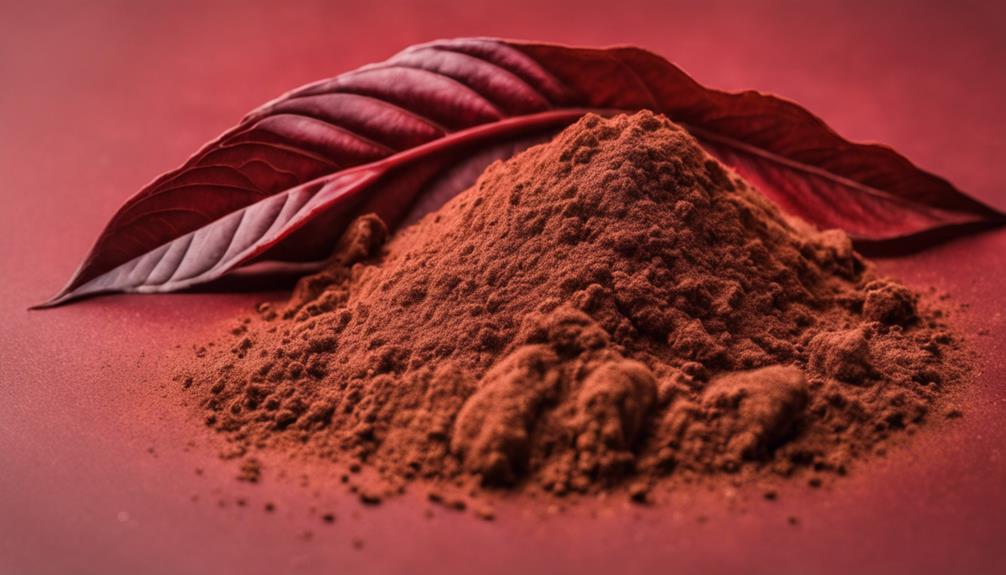Deprecated: mb_convert_encoding(): Handling HTML entities via mbstring is deprecated; use htmlspecialchars, htmlentities, or mb_encode_numericentity/mb_decode_numericentity instead in /home/users/kratomfiles/www/kratomfiles.com/wp-content/plugins/quick-adsense-reloaded/includes/template-functions.php on line 3552
Have you ever considered the impact of kratom on your liver? While the popularity of kratom continues to rise, there are concerns regarding its potential effects on liver health. Recent studies have shed light on the connection between kratom use and fatty liver disease, raising important questions about the safety of this herbal supplement. In this discussion, we will explore the research, potential risks, symptoms, and tips for using kratom safely with a fatty liver. Stay tuned to discover how you can protect your liver while utilizing the benefits of kratom.
Research on Kratom and Fatty Liver

Research on kratom and its potential effects on fatty liver is limited, but there are concerns about the impact of kratom use on liver health. While kratom is often promoted as a herbal supplement for managing chronic pain, there have been reports of kratom-induced liver injury. Several clinical cases have shown a causal association between kratom use and acute liver injury, with symptoms including fatigue, nausea, pruritus, dark urine, and jaundice.
A review of cases found that out of eight instances of drug-induced liver injury, seven were associated with kratom use. This suggests that there is a significant risk of liver injury when using kratom as a herbal medication. In some cases, kratom use has even led to acute liver failure, organ dysfunction, toxicity, coma, seizures, and death. These severe outcomes highlight the potential dangers of using kratom without proper research and understanding of its effects on liver health.
It is important to note that the Food and Drug Administration (FDA) has expressed serious concerns about the risks of kratom and has ordered the destruction of kratom products. The FDA has also identified deaths associated with kratom use, further emphasizing the need for caution.
Potential Risks of Kratom for Liver Health
Kratom poses potential risks to liver health, as evidenced by reported cases of acute liver injury and concerns raised by the FDA. The use of kratom has been associated with cases of Drug-Induced Liver Injury (DILI), which can range from mild liver damage to severe liver failure requiring a liver transplant. The alkaloids present in kratom, such as mitragynine and 7-hydroxymitragynine, have been shown to bind and activate opioid receptors, potentially contributing to liver injury.
The FDA has expressed concerns about the safety of kratom, particularly in relation to liver health. There have been reports of cases of liver injury and even deaths associated with the use of kratom. Symptoms such as jaundice, dark urine, fatigue, and nausea have been reported, indicating potential liver damage.
To emphasize the potential risks of kratom for liver health, let's take a look at the following table:
| Potential Risks of Kratom for Liver Health |
|---|
| Increased risk of Drug-Induced Liver Injury |
| Symptoms of liver damage (jaundice, dark urine, fatigue, nausea) |
| Possible progression to severe liver failure |
| Lack of regulation and oversight on kratom products |
It is important to note that the lack of regulation and oversight on kratom products raises serious safety concerns. The variability in kratom products and the lack of standardized dosing make it difficult to determine the exact risks associated with its use. Therefore, caution should be exercised when using kratom, especially for individuals with liver disease or those who use kratom for chronic pain and diarrhea. If any symptoms of liver injury occur, it is crucial to seek medical attention promptly.
Symptoms and Complications of Kratom-Induced Liver Damage

Symptoms and complications associated with liver damage induced by the use of kratom can have serious implications for one's health and may require prompt medical attention. If you are experiencing liver damage from kratom, you may notice several symptoms that can serve as warning signs. These symptoms include jaundice, which is characterized by yellowing of the skin and eyes, fatigue, nausea, dark urine, pale stool color, and itching. These symptoms indicate that the liver is not functioning properly and may be damaged.
Complications arising from kratom-induced liver damage can be severe and potentially life-threatening. One of the most serious complications is acute liver failure, which occurs when the liver suddenly stops working. Acute liver failure can lead to a range of complications, including bleeding, increased pressure in the brain, severe infections, and even death. In some cases, a liver transplant may be necessary to save the individual's life.
It is important to note that liver damage from kratom can occur even with prolonged use in normal doses. This herbal supplement, often used for its purported health benefits, carries the risk of liver injury and toxicity. Therefore, it is advisable to avoid the use of kratom altogether, as it also has the potential for addiction and dependence.
If you are experiencing symptoms of liver damage associated with kratom use, it is essential to consult a doctor promptly. They can evaluate your condition, provide appropriate medical interventions, and determine the best course of action. Mild to moderate cases of liver toxicity or injury from kratom may be treated with specific medications acting as antidotes. However, severe cases of acute liver failure may require a liver transplant to restore liver function and save your life. Remember, your health is of utmost importance, and seeking medical attention is crucial when dealing with kratom-induced liver damage.
Tips for Using Kratom Safely With a Fatty Liver
When using kratom with a fatty liver, it is crucial to consult with a healthcare professional to assess the potential risks and benefits associated with its use. While kratom has been used traditionally for various purposes, its safety and efficacy in individuals with liver conditions, such as fatty liver, have not been extensively studied. However, there are some tips you can follow to use kratom safely with a fatty liver.
First and foremost, it is recommended to reduce the dosage of kratom when using it with a fatty liver. This can help minimize potential liver stress and reduce the risk of liver injury. Additionally, it is important to avoid consuming kratom in combination with other substances that may further burden the liver, especially with a fatty liver condition. The liver already has to work harder to process medications and substances, so adding more stress can be detrimental.
Regularly monitoring your liver function through blood tests is another important step to ensure safety when using kratom with a fatty liver. By doing so, any potential adverse effects can be detected early, allowing for prompt medical advice and intervention if needed.
In addition to these precautions, it is essential to prioritize overall liver health. Adopting a balanced diet, staying hydrated, and avoiding excessive alcohol consumption are crucial steps to support liver function. These lifestyle choices can complement the safe use of kratom and promote liver health.
Can Green Vein Thai Kratom Contribute to Fatty Liver?
Green vein Thai kratom has been known to have potential benefits for liver health. Some studies suggest that it may help with liver protection and regeneration. However, it’s important to consult with a healthcare professional before using green vein Thai kratom, especially if you have existing liver issues.
Can using Kratom with natural boosters help alleviate symptoms of fatty liver?
Combining kratom with natural boosters can potentially alleviate symptoms of fatty liver. The natural boosters can help improve liver function and overall health, while kratom can provide pain relief and promote relaxation. When used together, they can help boost your energy naturally combine kratom and manage fatty liver symptoms.
Can Kratom Toss and Wash Method Affect the Liver?
The kratom toss and wash technique involves consuming powdered kratom by mixing it with a liquid and swallowing it quickly. Some studies suggest that this method may put a strain on the liver due to the concentrated nature of the kratom. It is advisable to consult with a healthcare professional before using this method.
Promoting Liver Health While Using Kratom

To promote liver health while using kratom, it is important to incorporate a few key practices into your routine. Here are some tips to help you maintain a healthy liver while using kratom:
- Stay Hydrated: Drinking adequate water is crucial for supporting liver function. Proper hydration helps flush out toxins and keeps your liver functioning optimally.
- Balanced Diet: Following a healthy and balanced diet rich in nutrients is essential for liver health. Include plenty of fruits, vegetables, whole grains, and lean proteins in your meals.
- Regular Check-ups: Schedule regular check-ups with your healthcare provider to monitor your liver function and detect any potential issues early on. This is especially important if you are using kratom regularly.
- Consult a Doctor: Before considering the use of kratom, it is important to consult a doctor. They can evaluate your individual health conditions and potential interactions with kratom, ensuring your safety.
- Caution with Kratom: Approach kratom use with caution. Individual reactions to kratom can vary, and there is evidence suggesting that it may cause liver toxicity. Be mindful of any adverse effects and consider alternative options if needed.
Frequently Asked Questions
What Supplements Are Not Good for Fatty Liver?
To maintain a healthy liver, it's important to be mindful of what you put into your body. A healthy diet low in saturated fats and high in fruits, vegetables, and whole grains is beneficial for fatty liver. Regular exercise helps reduce liver fat and improve overall liver health. Limiting alcohol consumption is crucial, as it can worsen fatty liver. Excessive sugar intake should also be avoided, as it contributes to liver damage. Staying hydrated and incorporating antioxidants through a balanced diet can support liver health. Weight loss can significantly improve fatty liver. Stress and smoking should be minimized, while herbal teas can provide additional liver benefits.
What Medication Is Bad for Fatty Liver?
When it comes to fatty liver, certain medications can be harmful. For example, acetaminophen, NSAIDs, and high-dose methotrexate can have negative effects. It's important to be cautious with medications metabolized by the liver, such as statins, tamoxifen, and certain antibiotics. Antiretroviral drugs, corticosteroids, and certain anti-seizure medications can also worsen fatty liver. To ensure your safety, consult a healthcare professional about the specific medications you're taking. Avoiding excessive alcohol consumption is crucial, as it can worsen fatty liver.
What Herbs Are Bad for Fatty Liver?
When it comes to herbs that may be bad for fatty liver, it's important to be cautious. While some herbs, such as milk thistle and dandelion root, are believed to have potential liver-supporting benefits, there isn't enough scientific evidence to make definitive claims. It's always best to consult with a healthcare professional before incorporating any natural remedies or detoxification methods into your routine. They can provide personalized guidance on herbal teas, liver supporting foods, lifestyle changes, exercise routines, stress management techniques, dietary restrictions, liver-friendly recipes, and alternative therapies that may be beneficial for your specific condition.
Can You Reverse Liver Damage?
Yes, you can reverse liver damage through various natural remedies, lifestyle changes, and dietary tips. Regular exercise plays a crucial role in improving liver function and aiding in its regeneration. Research shows promising results in liver healing and restoration. Detoxification methods, holistic approaches, and managing stress are also important for optimal liver health. It's essential to avoid alcohol and prioritize sleep and relaxation to support liver recovery. Consult with a healthcare professional for personalized advice.










